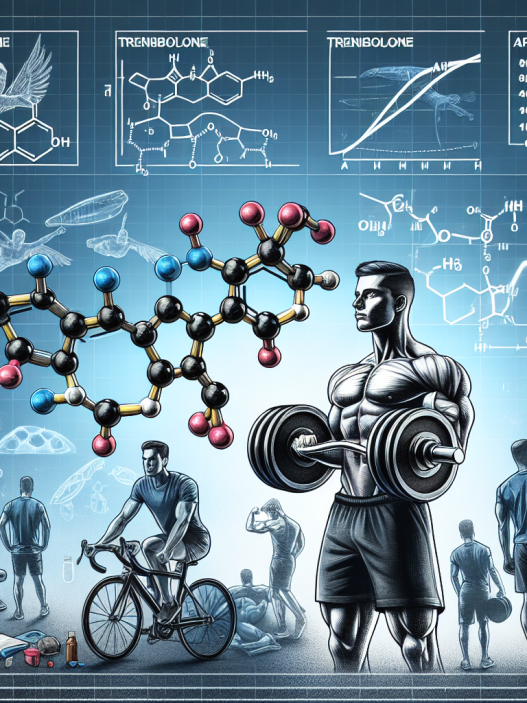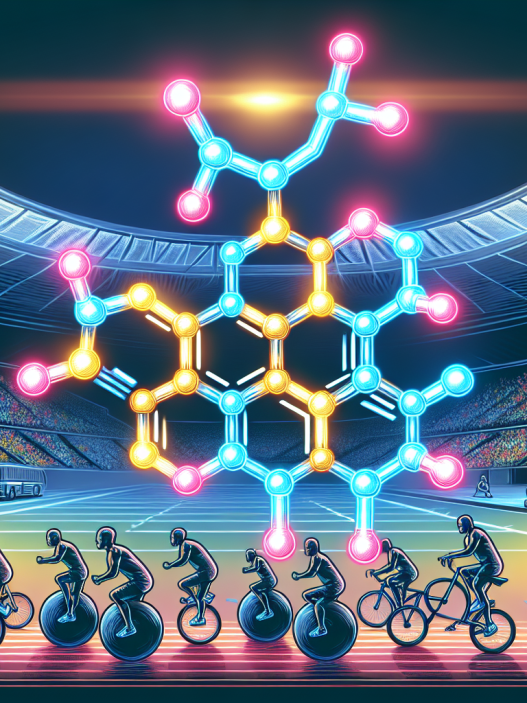-
Table of Contents
Regulations on Testosterone Undecanoate Use in Sporting Events
Testosterone undecanoate, also known as testosterone undecylate, is a synthetic androgen and anabolic steroid that is used to treat low testosterone levels in men. It is also used off-label by athletes and bodybuilders to enhance performance and muscle growth. However, the use of testosterone undecanoate in sporting events has been a controversial topic due to its potential for abuse and unfair advantage. In this article, we will discuss the regulations surrounding the use of testosterone undecanoate in sporting events and its impact on athletes.
The World Anti-Doping Agency (WADA)
The World Anti-Doping Agency (WADA) is responsible for setting and enforcing the rules and regulations for drug testing in sports. WADA’s Prohibited List is a comprehensive document that outlines the substances and methods that are banned in sports. Testosterone undecanoate is included in the list under the category of anabolic agents.
According to WADA, the use of testosterone undecanoate is prohibited at all times, both in and out of competition. This means that athletes are not allowed to use this substance at any point during their training or competition, regardless of whether it is in their system or not. The only exception is if an athlete has a valid Therapeutic Use Exemption (TUE) for testosterone undecanoate, which is granted for medical reasons.
WADA’s decision to ban testosterone undecanoate is based on its potential for performance enhancement and its adverse health effects. Testosterone undecanoate is a synthetic form of testosterone, which is a naturally occurring hormone in the body that is responsible for muscle growth and development. By taking exogenous testosterone, athletes can increase their muscle mass and strength, giving them an unfair advantage over their competitors.
Moreover, the use of testosterone undecanoate has been linked to several health risks, including liver damage, cardiovascular problems, and hormonal imbalances. These risks are heightened when the substance is used in high doses or for prolonged periods, as is often the case in the sporting world.
Testing for Testosterone Undecanoate
In order to detect the use of testosterone undecanoate, WADA conducts both urine and blood tests. The urine test, known as the T/E ratio test, measures the ratio of testosterone to epitestosterone in the urine. A high T/E ratio is indicative of exogenous testosterone use. However, this test is not specific to testosterone undecanoate and can also detect other forms of testosterone.
The blood test, on the other hand, can specifically detect testosterone undecanoate. This test measures the levels of testosterone and its metabolites in the blood. Testosterone undecanoate has a long half-life of approximately 33 hours, which means it can be detected in the blood for up to 3 months after use. This makes it difficult for athletes to cheat the system by timing their use of the substance.
Real-World Examples
There have been several high-profile cases of athletes being caught using testosterone undecanoate in sporting events. One such case is that of American sprinter, Justin Gatlin, who tested positive for testosterone undecanoate in 2006. He was banned from competing for 4 years and stripped of his gold medal at the 2006 World Athletics Championships.
In another case, Russian tennis player, Maria Sharapova, tested positive for testosterone undecanoate in 2016. She was banned from competing for 2 years and lost several major endorsements as a result.
These cases serve as a reminder that the use of testosterone undecanoate in sports is not only against the rules but also carries serious consequences for athletes who are caught.
Expert Opinion
According to Dr. Mark Harrast, a sports medicine physician and member of the American Medical Society for Sports Medicine, “The use of testosterone undecanoate in sports is a form of cheating and goes against the spirit of fair play. It also poses significant health risks to athletes, which is why it is banned by WADA.”
Dr. Harrast also emphasizes the importance of educating athletes about the dangers of using performance-enhancing drugs and the importance of abiding by the rules set by WADA. “It is crucial for athletes to understand that the use of testosterone undecanoate and other banned substances not only jeopardizes their health but also their careers and reputation,” he says.
Conclusion
In conclusion, the use of testosterone undecanoate in sporting events is strictly prohibited by WADA and carries severe consequences for athletes who are caught. The substance is banned due to its potential for performance enhancement and its adverse health effects. Athletes should be aware of the rules and regulations set by WADA and the importance of fair play in sports. It is also crucial for healthcare professionals and sports organizations to educate athletes about the dangers of using performance-enhancing drugs and promote a clean and fair sporting environment.
References
1. World Anti-Doping Agency. (2021). The 2021 Prohibited List. Retrieved from https://www.wada-ama.org/en/content/what-is-prohibited/prohibited-in-competition/anabolic-agents
2. Bhasin, S., Storer, T. W., Berman, N., Callegari, C., Clevenger, B., Phillips, J., … & Casaburi, R. (1996). The effects of supraphysiologic doses of testosterone on muscle size and strength in normal men. New England Journal of Medicine, 335(1), 1-7.
3. Kicman, A. T. (2008). Pharmacology of anabolic steroids. British Journal of Pharmacology, 154(3), 502-521.
4. Harrast, M. (2019). Performance-enhancing drugs in sports. American Medical Society for Sports Medicine. Retrieved from https://www.amssm.org/Content/pdf%20files/2019%20AMSSM%20Position%20Statement%20on%20Performance-Enhancing%20Drugs%20in%20Sports.pdf



















